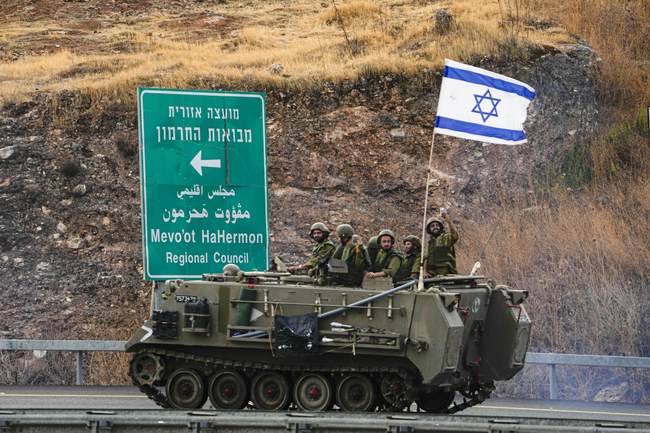
This article was originally published on PJ Media - Politics. You can read the original article HERE

If I were a Hezbollah commander of anything, I would check to see if my clothing has been made radioactive or if someone painted a big bullseye on my back. Another of Hezbollah's top commanders has been taken out in a precision strike that makes us wonder who's left to kill.
Advertisement
Ibrahim Muhammad Qubaisi, commander of Hezbollah’s missiles and rockets force, along with other Hezbollah commanders, were killed in a Beirut airstrike on Tuesday. The strike was one of 500 sorties Israeli warplanes flew to weaken Hzbnollah's command and control structure and sow confusion in advance of what is widely expected to be an Israeli invasion.
"As Prime Minister Netanyahu said this week, Israel is 'not waiting for the threat; [it is] preempting it,'" Jacob Olidort, senior policy adviser at America First Policy Institute told Fox News. "Towards that end, Israel is not only removing munitions in southern Lebanon but is also targeting Hezbollah's command and control structure and its fighting force, as evidenced in recent days. The elimination of Ibrahim Qubaisi is part of this approach."
Last Friday, another Beirut attack killed Ibrahim Aqil, Hezbollah's operations commander and commander of its elite Radwan Force.
Lebanon says that Israeli strikes have killed more than 500 people since Monday. The growing threat of war in Lebanon has driven Joe Biden to send additional troops to help evacuate Americans if a ground war breaks out.
The U.S. forces will add to the roughly 40,000 troops already in the region — a presence that has grown as the war between Israel and Hamas continued and tensions with Hezbollah intensified. The new troops will have a different mission, the officials said, specifically to be on standby if the fighting between Israel and Hezbollah threatens Americans and evacuations are needed.
The Pentagon press secretary, Maj. Gen. Pat Ryder, said Monday that the U.S. was sending a small number of additional American forces “to augment our forces that are already in the region.” He declined to identify how many of the additional troops would be deployed, why or where, citing operational security.
Advertisement
The report continues:
Biden administration officials are concerned about a lack of understanding about what Israel’s plans are when it comes to conflict with Hezbollah, an issue that has also arisen at times during Israel’s war against Hamas.
Indeed, put simply, Netanyahu doesn't trust the Biden administration with knowledge of their plans. Not only does the administration leak like a sieve, but trusting it to keep secrets from Israel's enemies is also a risk that Netanyahu and the Israelis don't appear willing to take.
There is growing concern in the administration that, nearly a year since the start of the war between Israel and Hamas, the U.S. has lost the ability to prevent a wider conflict — despite months of intensive efforts — and that any hope for a cease-fire deal in Gaza has diminished.
Israel and Hezbollah have been launching more missile attacks on each other. Israel ratcheted up tensions with an operation last week detonating explosives in pagers and walkie-talkies it had secretly supplied to Hezbollah militants.
Hezbollah is crippled. We can be fairly certain that at this moment, it doesn't want to get tangled up in a ground war against the IDF. It depends on good interior communications to be able to fight the Israelis That advantage has disappeared which makes me think Hezbollah will continue to absorb the blows Israel is delivering and not take the bait to attack.
Advertisement
This article was originally published by PJ Media - Politics. We only curate news from sources that align with the core values of our intended conservative audience. If you like the news you read here we encourage you to utilize the original sources for even more great news and opinions you can trust!










Comments